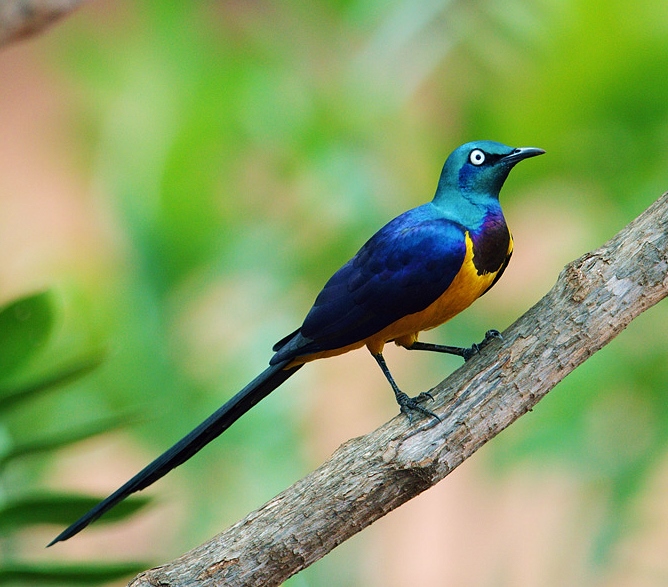 |
| Photo by Nick Athanas (Antpitta) |
Common name:
golden-breasted starling (en); estorninho-de-peito-dourado (pt); choucador royal (fr); estornino de pecho dorado (es); königsglanzstar (de)
Taxonomy:
Order Passeriformes
Family Sturnidae
Range:
This species is found in East Africa, from southern and eastern Ethiopia, through Somalia and Kenya and into northern Tanzania.
Size:
These birds are 30-38 cm long and weigh 45-56 g.
Habitat:
The golden-breasted starling is found in arid areas, namely dry scrublands and savannas and to a lesser extent in dry grasslands.
Diet:
They catch insects in flight and dig up termite mounds to eat termites, but will also eat some fruits and berries.
Breeding:
Golden-breasted starlings are cooperative breeders, leaving in social groups of 3-12 individuals who help build the nest and feed the young. They nest in tree holes, where they build a cup nest made of leaves, roots and other plant materials. There the female lays 3-5 pale green eggs with red speckles, which are incubated for 11-14 days. The chicks are fed by both parents and other group members and fledge about 3 weeks after hatching.
Conservation:
IUCN status – LC (Least Concern)
This species has a very large breeding range and is described as locally common. The population is suspected to be stable in the absence of evidence for any declines or substantial threats.







